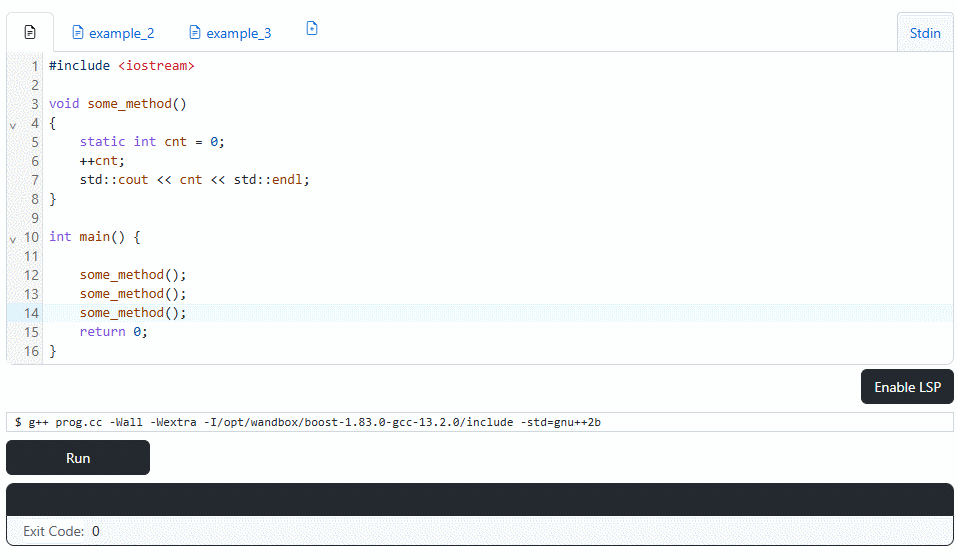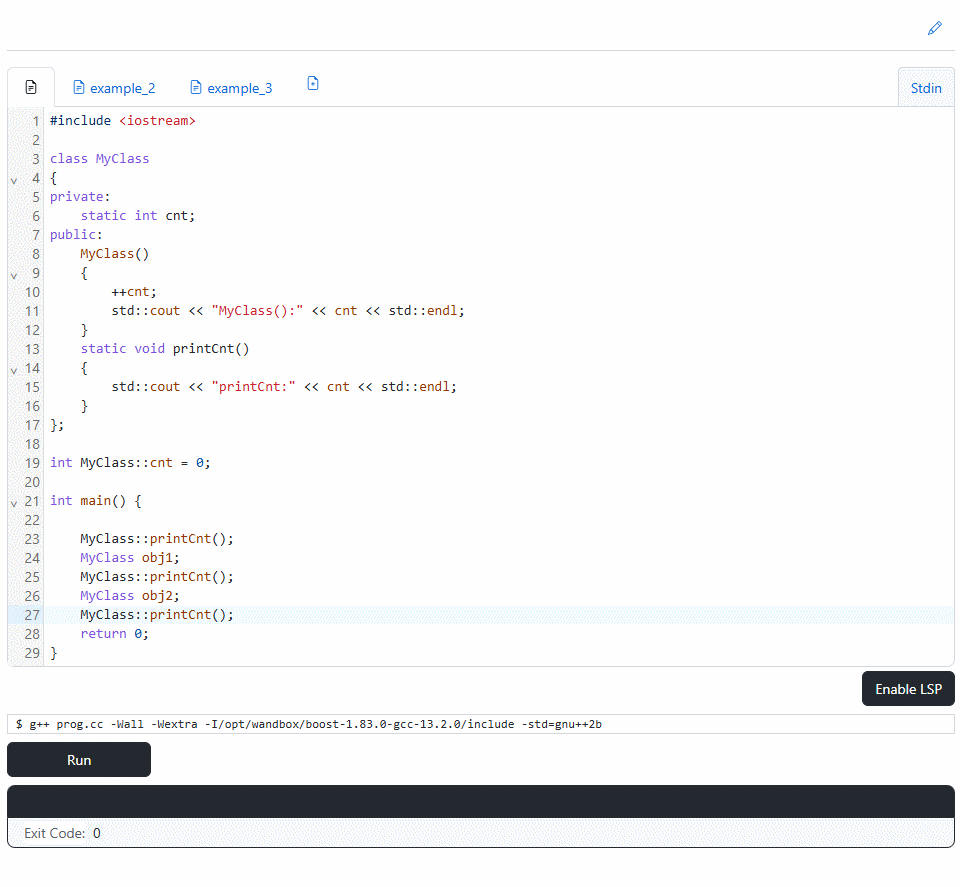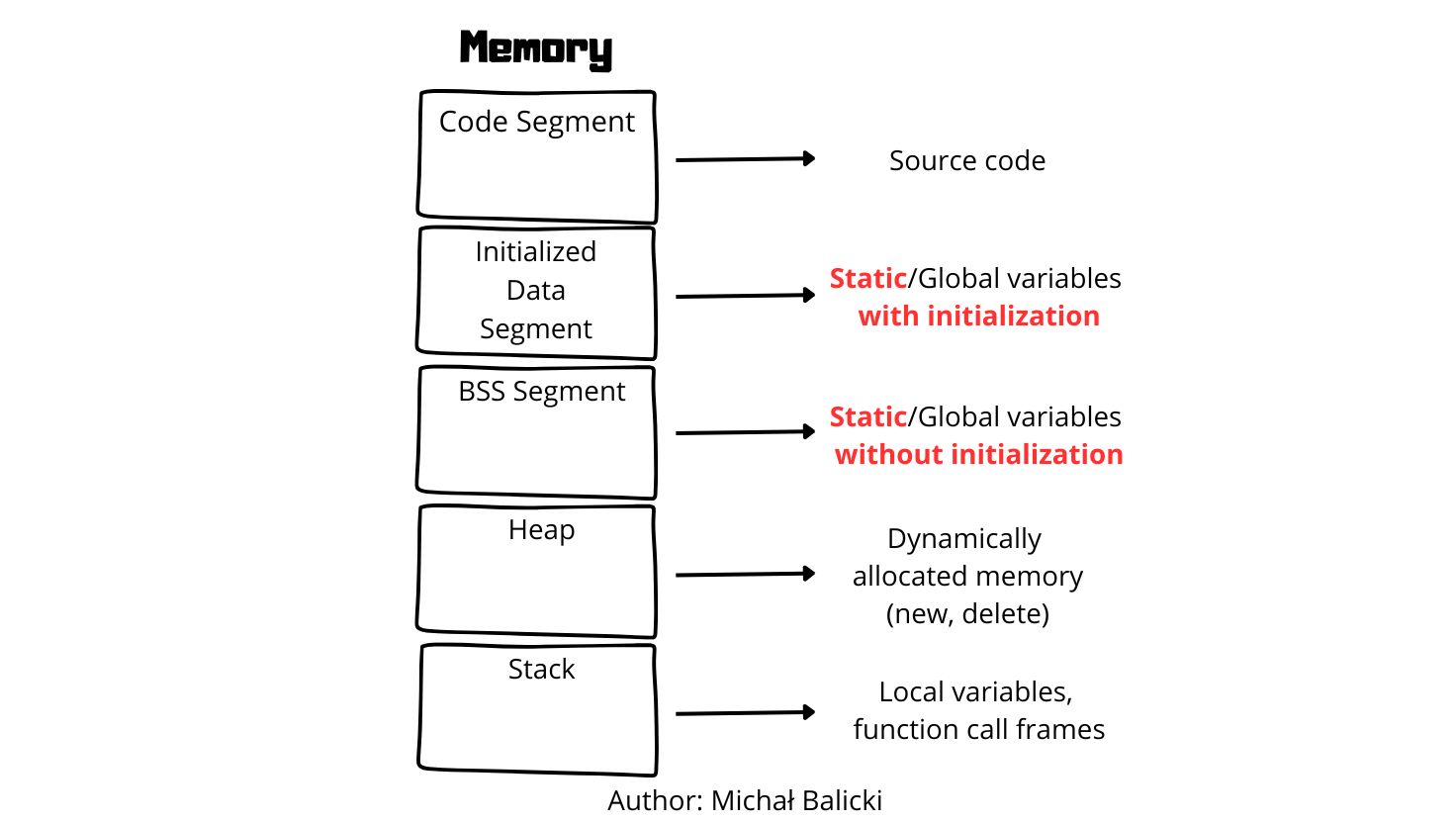Hello!
In the context of C++ the static keyword has several uses. The main ones are:
- Use within a function. A variable declared in this way has a static lifetime. In practice means that the variable is initialized only once and retains its value between subsequent function calls:

- Use within a class. In practice, this means that a given element(variable or function) will be common to every instance of a given class. Below is an example of static variable incremented in the constructor.
Each subsequent instance sees the updated value:

- The next case concerns the declaration of a variable or function within a file. Here, it is mainly about distinguishing the consequences of using the keywords static and extern. The keyword extern
will allow the use of a variable in multiple files. On the other hand, using static means that the visibility of the variable is limited to a single file. Generally, if we do not use extern explicitly, the default keyword will be static.
It is also worth knowing what causes such a behavior of a static variable. It is mainly about locating it in a specific place in memory. This is illustrated in the figure below:

- As you can see, initialized static variables are located in a special area of memory(Initialized Data Segment). They are allocated during program startup and allow their state to be preserved between function calls
or when creating subsequent object instances.
- The situation is similar in the case of BSS, with the only difference being that this memory area contains static variables without initialization.
See you in the next post soon!


